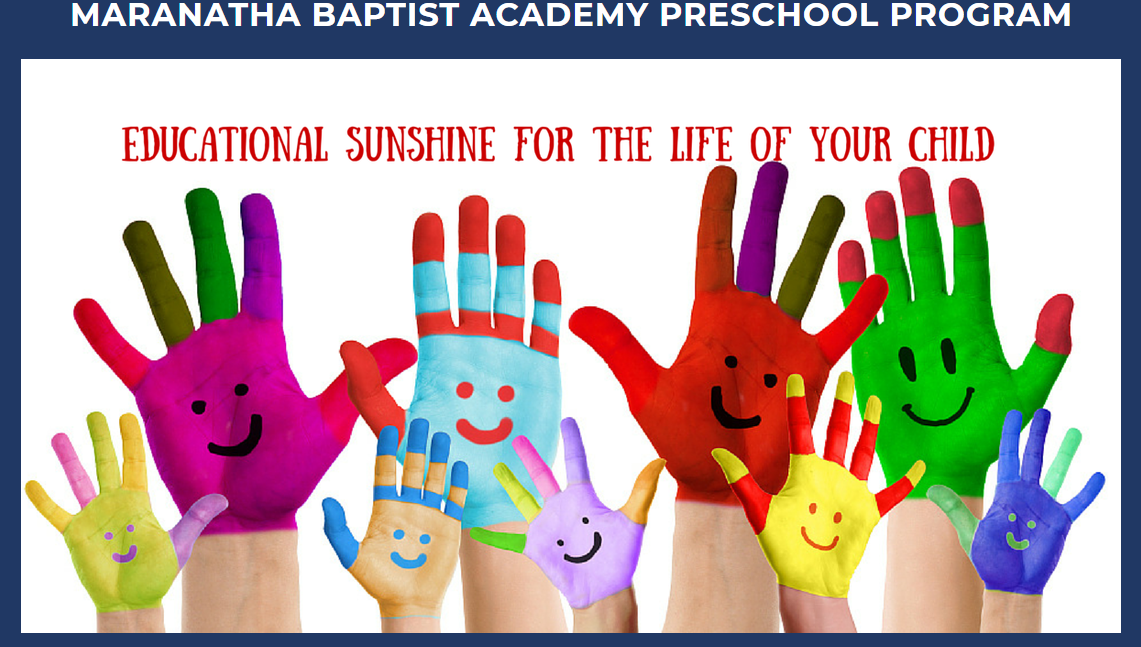|
At Maranatha, we want to teach students who want to learn. We want to help parents develop a thirst for knowledge in their children. We want children to understand more and more about the world God has created and consequently discover how God wants to use them in the world. How can parents develop this thirst for knowledge and learning? Here are some tips we found in this excellent article. We hope you find them helpful. If we can be of help to you or your family, please contact us or schedule a visit to come see our school. By Karen Andreola A pudgy one ’n-a-half-year-old holds his toy telephone to his ear, listening intently to its stop-and-go tune. He presses a button, talks gibberish—impersonating his mother remarkably well. He toddles across the room with his phone to his ear like his mother who tidies the house with a dust cloth in one hand, her telephone in the other. I laughed when I saw it. The toddler is my grandson. Not only is he cute, but he also provides a good illustration. Curiosity and imitation are active in young children. Children are sponges, natural learners, eager learners, nosy and inquisitive. This is what the nineteenth-century Christian British educator, Miss Charlotte Mason, aimed to safeguard in her students. She took advantage of this child-nature by tailoring a method of passing along knowledge that keeps the doors of curious minds open. Here are seven tips I gleaned from Miss Mason for a happy, curious lifetime of learning. Tip #1: Choose individual books for general knowledge. An author with a special interest in his subject will write a book with juicy details—details left out of a typical textbook overview. Such a book has the power to open the doors of a child’s mind in ways no textbook can, because it may be full of facts, the same facts found in a textbook, but the information is presented in literary form, in a more palatable and memorable way. An example of an author who delivers facts through literary genre is Holling Clancey Holling. You can find his books in most public libraries. They have been around since 1926. A student, the average age of 10, will be intrigued by the combination of story, facts, illustration, and extraordinary detail. Paddle-to-the-Sea, Tree in the Trail, Seabird, and Pagoo are four of his titles. Add up the details and it might surprise you how they surpass those of a textbook. A wealth of such books is available on a myriad of topics. Freely and confidently use them as legitimate schoolbooks. Tip #2: Take advantage of the talking recourse. When a child enters a first-grade classroom, he is trained to sit still and be silent for long stretches of time. In the homeschool, he has more opportunity to chatter. Like tapping a sugar maple for its sap, Charlotte Mason took advantage of this talking recourse. She replaced the classroom lecture with reading aloud. The authors of well-written, carefully worded books were the teachers. She believed in a child’s ability to narrate (to tell back in his own words what is read to him) to be an amazing gift that every normal child is born with—and the best way to gain knowledge from books. To spark a narration, use a short but meaningful passage such as an Aesop fable, for example. To get the quiet child to say more, simply ask, “What else?” Over time, the skill and power of narrating will carry over beautifully to the student’s writing ability. Multiple-choice, fill-in-the-blank, and true-and-false tests do not facilitate writing. In the homeschool, we can replace these classroom conveniences and the teacher’s lecture with the intelligent chatter of narration from books. Tip #3: Do some science in the fresh outdoors. Lessons are only as long as they need to be in the homeschool. When one lesson is completed, the next is begun. With a student’s full attention, a string of lessons can be accomplished in nearly half the time of a conventional school schedule—and with no after-hours homework. Time is available for getting outdoors. Once a week, my children and I would take a nature walk for firsthand observation. We’d record a nature find with a sketch of it, be it insect, wildflower, bird, etc., and keep a field guide handy to identify it. The find might be as common as a dandelion, ant, pinecone, or robin. “Look, Ma, a butterfly landed on my sweater.” Nature poems abound. The time taken to choose a relevant nature poem to be copied into a Nature Diary is time well spent for English. Tip #4: Cultivate an appreciation for art and music. I home-educated my three children through high school. These now-adult children meet with friends who were not home-educated and are sometimes struck with how words call to mind different associations. In conversation, the name Leonardo was brought up in reference to a painting on a Christmas card. A friend blurted out, “Oh, I didn’t know Leonardo could paint.” She was referring to an American actor. My children thought this was funny. The sad part is that the friend knew nothing whatsoever about the Italian Renaissance artist, Leonardo Da Vinci. A simple way to become familiar with some of the world’s greatest works of art is to open the pages of an art print book. Art appreciation provides children a storehouse of beautiful or thought-provoking images. Charlotte Mason recommends we display six pictures of one artist’s works throughout a semester. Let the children look and look and then describe what they see. No fancy or expensive curriculum is needed. Music appreciation is just as simple. Pop in a CD of greatest hits of Bach, Vivaldi, Scott Joplin, or Gershwin. Play a composer’s music while you wash dishes, travel in the car, draw, or give the little ones a bath. Classical pieces and folk tunes are part of our cultural heritage. Art and music appreciation will inoculate your students against grotesque noise and images they are sure to stumble upon in their lifetime. Tip #5: Read history that has muscle. In the homeschool, we are free to look for heroes in history. History has much to teach us about the choices of mankind and the consequences that result. The sacrifices made, the human struggle for discovery, the perseverance of invention, etc. give us hope that there are people who care to make a contribution to the world, care about future generations. Who are these people? What did they believe? To keep history from being dull or flabby, its pages need to be inspiring. History with the muscle of right versus wrong will help children develop their own willpower to do what is right, to choose to follow God and to do it with all their might. We can highlight our history curriculum with “hero admiration.” The Bible, biography, and historical fiction can supply inspiring heroes whose virtues children may choose to emulate. “Character is king,” said Ronald Reagan. It was a priority with Charlotte Mason as well. Tip #6: Instill good habits of quiet discipline. The homeschool is an ideal place for instilling “habits of the good life.” Charlotte Mason tells us we can instill one habit in children at a time, keeping watch over those already formed. It is remarkable what routine and good manners will do for the atmosphere of the home. Saying “thank you” and “please,” sharing, taking turns, and waiting patiently can all become habit. Speaking the truth in love, using determination, counting our blessings, and remembering others in prayer are virtuous actions that do not need strenuous moral effort once they have become habit. A mother strives to be consistent. She knows a habit needs her watchful eye until it is formed. The greatest care will be at the onset. But once formed, the quiet discipline it brings is worth all the effort. Tip #7: Keep growing, Mom. To keep from feeling weary or overwhelmed, the home teacher can take part in what I call “Mother Culture.”® Homeschooling is a parent’s responsibility and noble pursuit, but children need to see that there is life outside of homeschooling. To dabble in an interest brings refreshment to a mother’s soul. How about rummaging in your closet for the red wool you purchased three years ago to knit that hat? Let the children see that Mom can take her own nature walk, sew a curtain, memorize a Psalm for Thanksgiving Day, go on a “field trip” with Dad, or enjoy any number of recreations of her choice that demonstrate to her children that life does not so completely revolve around them. Delicately pour into your cup diversions of the enriching kind—small portions yet regular servings. Keep growing into the person God is creating you to be. Your cup will overflow into the family circle. Karen Andreola is known by home educators by her groundbreaking book A Charlotte Mason Companion. Karen taught her three children through high school; studying with them all the many wonderful things her own education was missing. The entire Andreola family writes product reviews for Rainbow Resource Center. For encouraging ideas, visit her blog: momentswithmotherculture.blogspot.com. This article was originally published in The Old Schoolhouse Magazine. Reprinted with permission. Volume 7 Issue 2 - The Renewanation Review This article originally appeared in The Renewanation Review® magazine. All Rights Reserved. Reprinted here by permission of Renewanation. For more information regarding Renewanation, visit renewanation.org. Learn more about our School and Read other Articles...
1 Comment
I love that you talked about children having beautiful or thought-provoking images in their minds if they learn how to appreciate art. So I hope that the toddler learning facility that I will find for my son will have that kind of experience for him. Because being exposed to certain types of teaching approaches or experiences will become a foundation for him when it comes to his quest for learning.
Reply
Leave a Reply. |
Author and EditorsFaculty or Staff Members of Maranatha Baptist Academy Archives
April 2024
Categories |
|
Maranatha Baptist Academy
TELEPHONE NUMBER
(573) 336-5972 PHYSICAL ADDRESS 200 Acorn Dr Saint Robert, MO 65584 |
MARANATHA BAPTIST ACADEMY
A MINISTRY OF MARANATHA BAPTIST CHURCH Learn More About our Church Here. Visit our Church Facebook Page Here Quick School Links: Prospective Parents Academics The Academy's Journal Parent's Peace Digest Student Life Calendar and Events Non-Discrimination Policy |
© Maranatha Baptist Academy - All Rights Reserved
Proudly Powered by Purpose Launch Advancement LLC






 RSS Feed
RSS Feed





